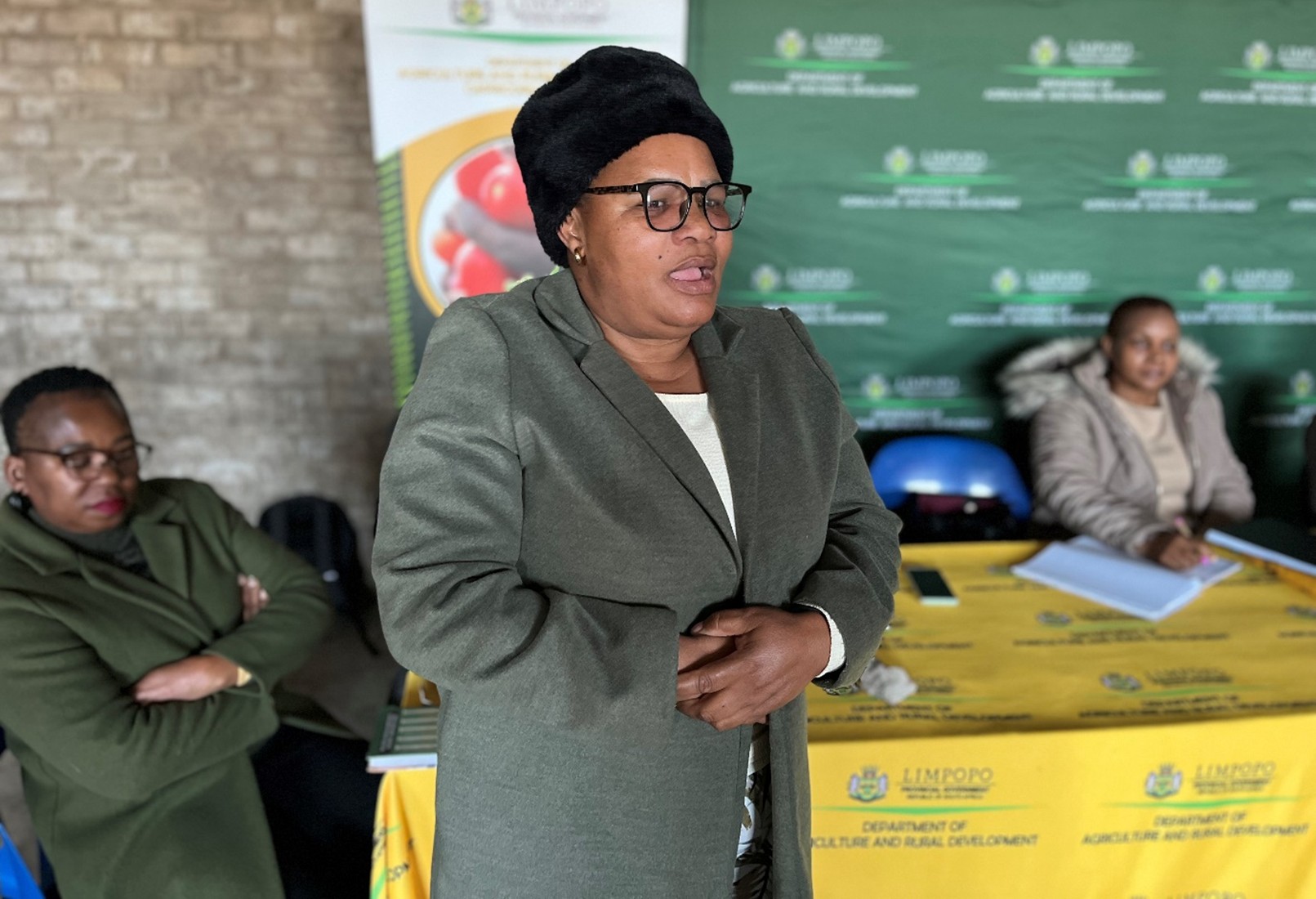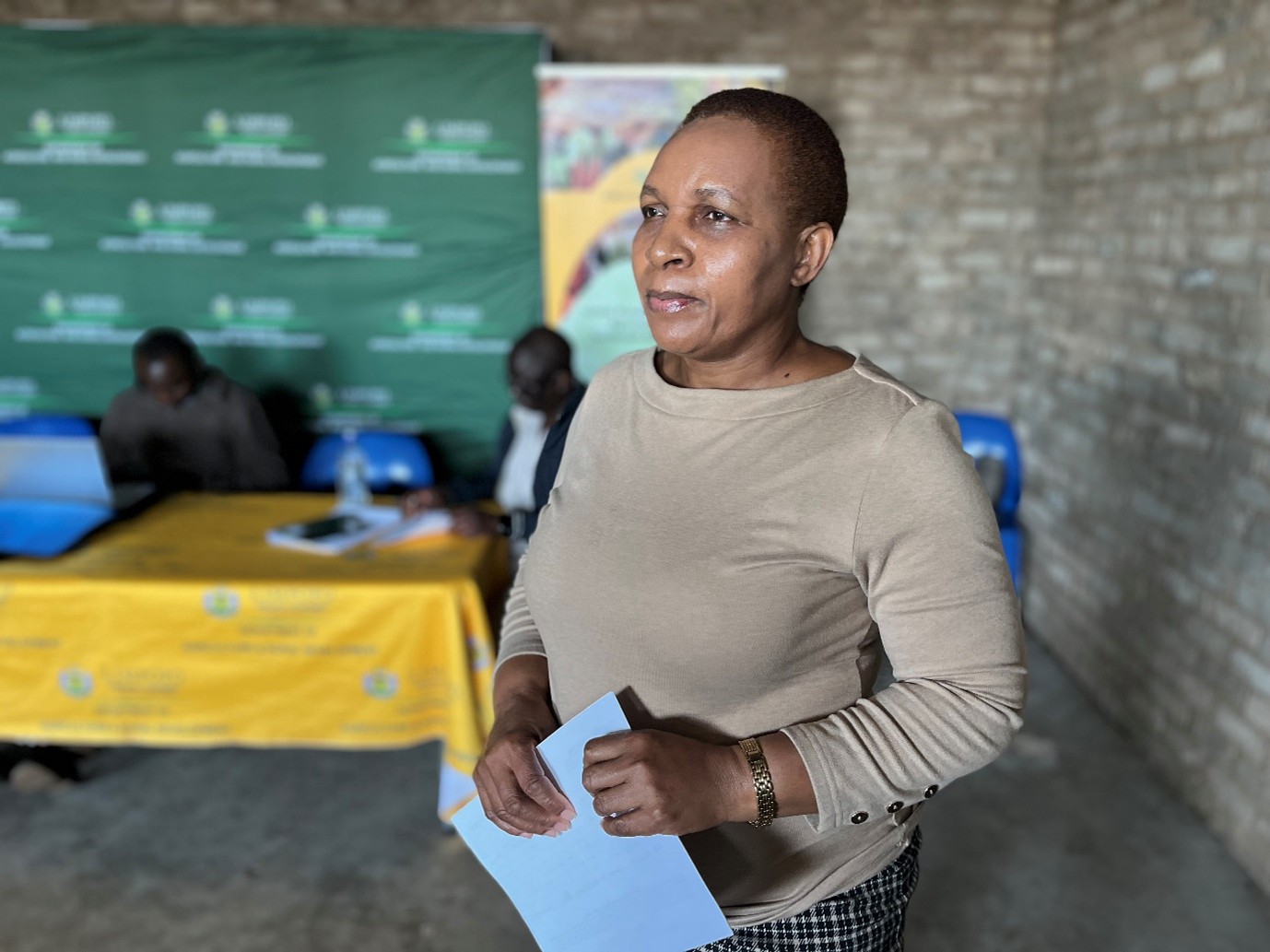By Maphuti Machabaphala

Farmers from Damplaats recently gathered for a capacity-building session hosted by the LandCare and Land Use Section of the Capricorn District. The central theme was clear: the sustainable use of natural resources.
The programme featured presentations on LandCare benefits, Disaster Management, Winter Management on Ruminants, Lumpy Skin Disease, and Sorghum management.
Control Agricultural Resource Technician personnel, Ms Phoshoko Dorothy, opened the session by urging farmers to always be mindful of how they manage land and other resources. She stressed that sustainable management practices are key to preserving soil, water, and other natural assets for long-term productivity.
Speaking on crop adaptation, Ms Sasa Rebinah, a Scientist Production Grade B, explained how climate change impacts food production and why sorghum is an excellent choice for local farmers. She described sorghum’s natural resilience — it thrives with less water, is heat- and drought-tolerant, and offers high nutritional value. Farmers were advised on best planting times, disease prevention, and how to achieve strong yields while maintaining quality.
On climate change and disaster preparedness, Mr Phahladira Selekane as the Disaster Risk Management A.S.D, highlighted how changing weather patterns are affecting agriculture, from unpredictable rainfall to shifting seasons. He explained the importance of planting climate-resilient crops and using management strategies that reduce risks and losses.
Winter livestock management and Animal health were addressed by Mr Talifhani Mmbi, an Animal Health Technician at Talifhani Farming Foundation. Mr Talifhani guided farmers on providing proper nutrition during colder months to maintain animal health and productivity. He also stressed the economic value of good livestock care, which supports household income and food security. Mr Talifhani touched on Lumpy Skin Disease, explaining its causes, prevention, and control. Farmers learned how to identify early symptoms and apply proper treatments. He also discussed the importance of controlling ticks to protect livestock from multiple diseases.
By the end of the session, farmers left with practical knowledge to improve their crop production, safeguard their animals, and better adapt to climate challenges. The gathering not only strengthened their technical skills but also built awareness on how thoughtful, sustainable practices can secure the future of their farming livelihoods.



